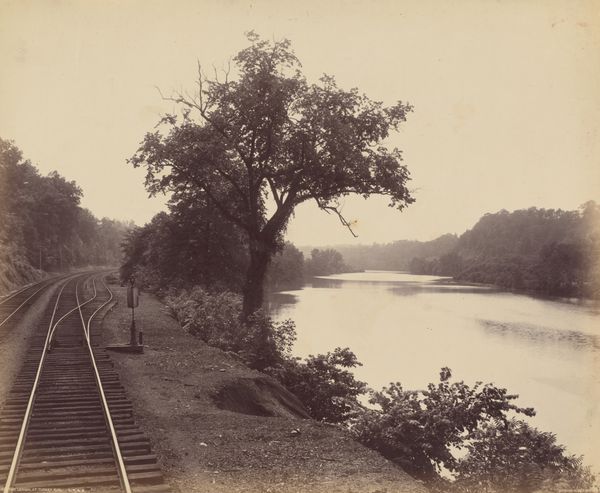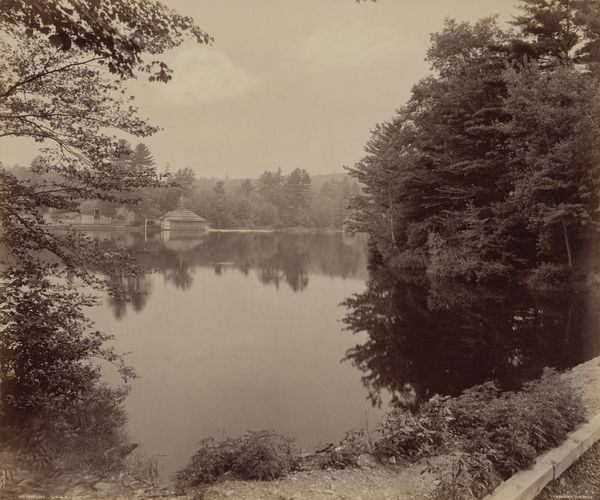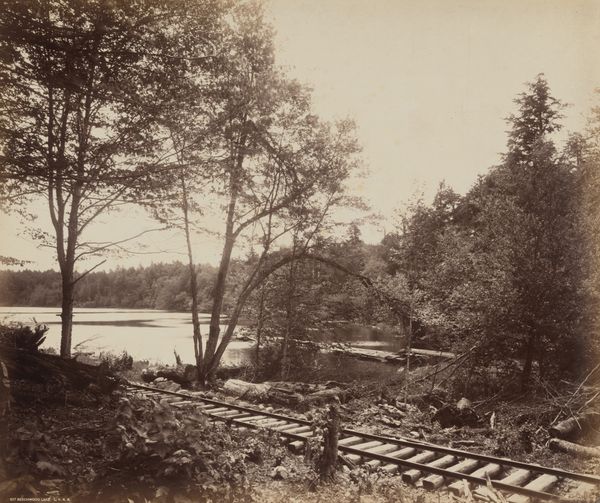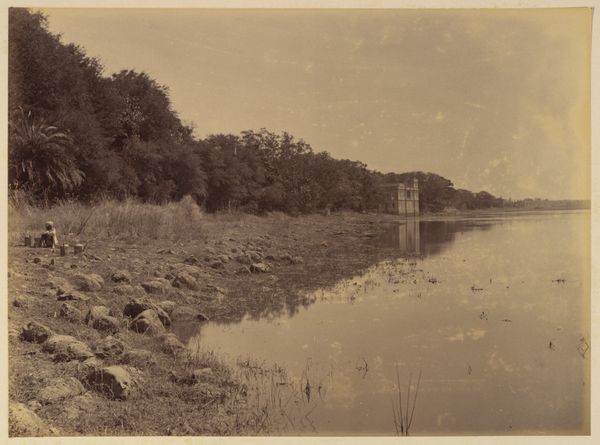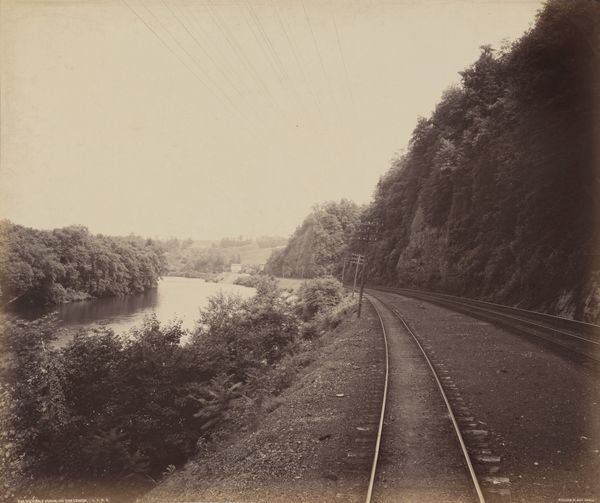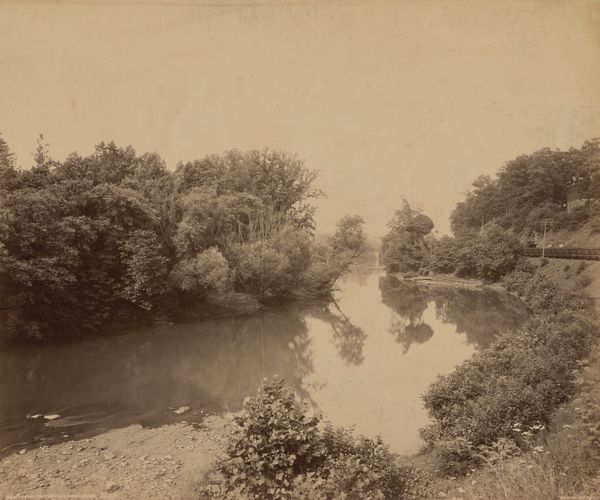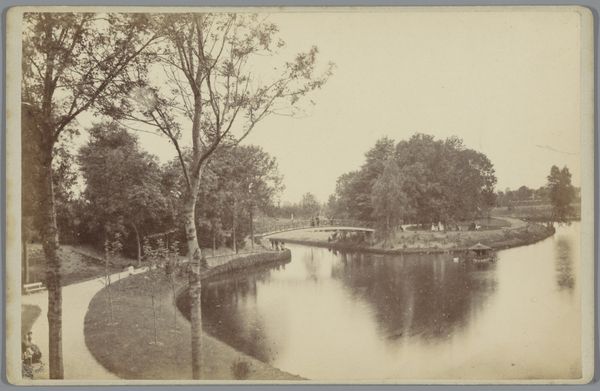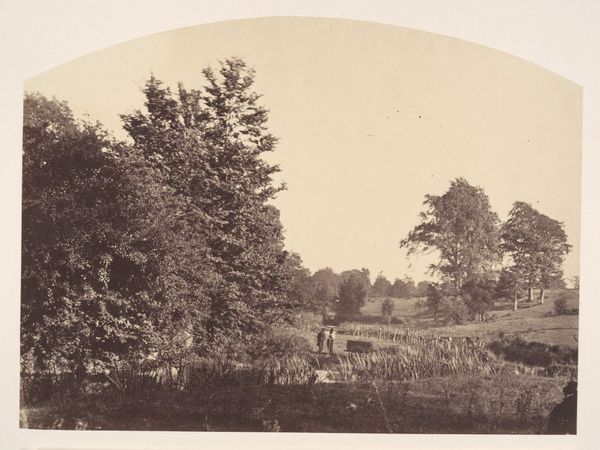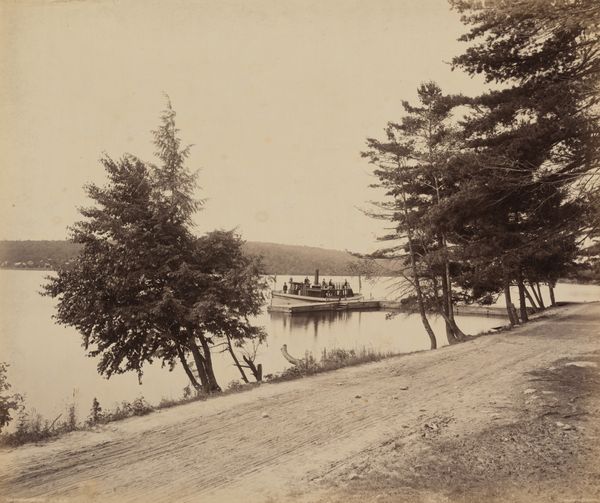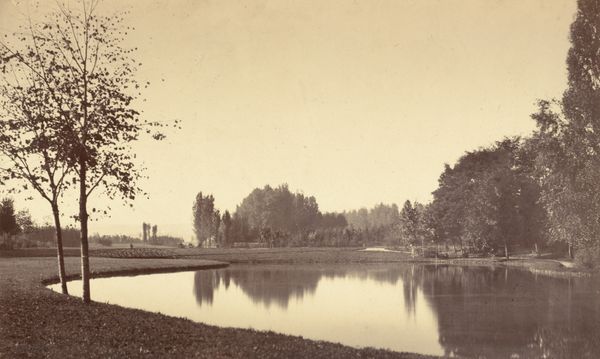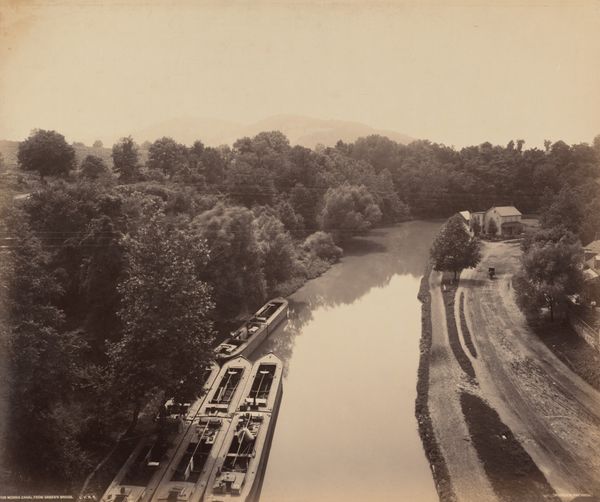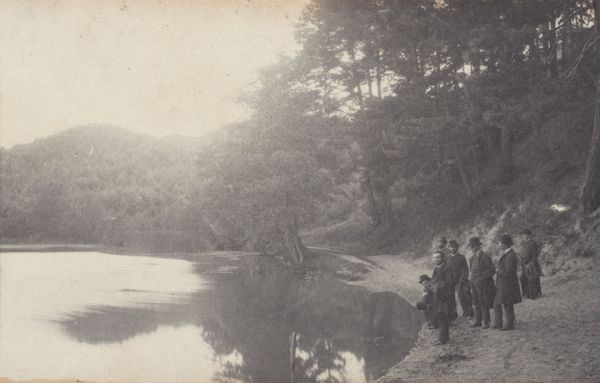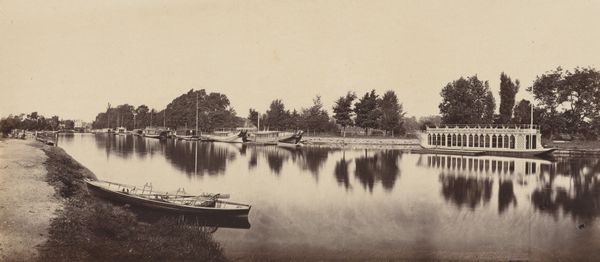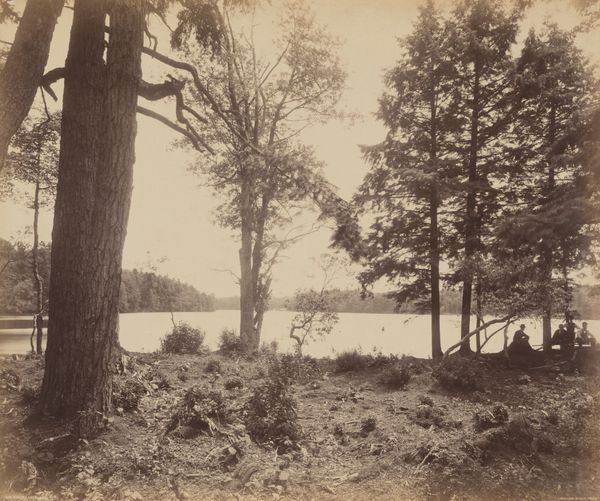
photography
#
16_19th-century
#
pictorialism
#
landscape
#
photography
Dimensions: image: 43.5 × 52 cm (17 1/8 × 20 1/2 in.) mount: 49.7 × 60.5 cm (19 9/16 × 23 13/16 in.)
Copyright: National Gallery of Art: CC0 1.0
Editor: This is "Bethlehem, Calypso Island," a photograph by William H. Rau, circa 1895. It feels like a hazy dreamscape. All that sepia tones create this wonderfully nostalgic mood. What historical elements stand out to you in this piece? Curator: What strikes me is how Rau frames this seemingly untouched landscape through the lens of Pictorialism. Consider the social context: late 19th-century America rapidly industrializing. Photographs like this offered an idealized, almost fictional retreat to nature. The soft focus and warm tones consciously mimic painting, elevating photography to high art. Rau is very intentionally positioning photography as a form that can represent ideals of beauty and peace, and shaping public taste, right? Editor: Absolutely. The 'Calypso Island' title makes me think of classical mythology. Was he deliberately mythologizing the American landscape? Curator: Precisely! It’s a layered reference. Calypso's island in The Odyssey represents isolation and escape from the world. By naming this Bethlehem scene "Calypso Island", Rau is commenting on the human desire to flee the increasing complications of modern life by imbuing this familiar area with new visual meaning and symbolic weight. The photo itself becomes a commodity, fueling a nostalgic desire within its viewers. Do you think this contributes to the idea of nature only being valued in how it escapes industry? Editor: That's a really insightful way to think about it. The image becomes almost complicit in creating this artificial divide. I now see that this goes beyond a simple landscape photograph. Curator: Indeed. By examining its context and intent, the piece provides insight into not just aesthetic trends, but societal values of the period. Editor: This has definitely changed how I see photography's role in shaping culture and public perception back then. Thanks!
Comments
No comments
Be the first to comment and join the conversation on the ultimate creative platform.
